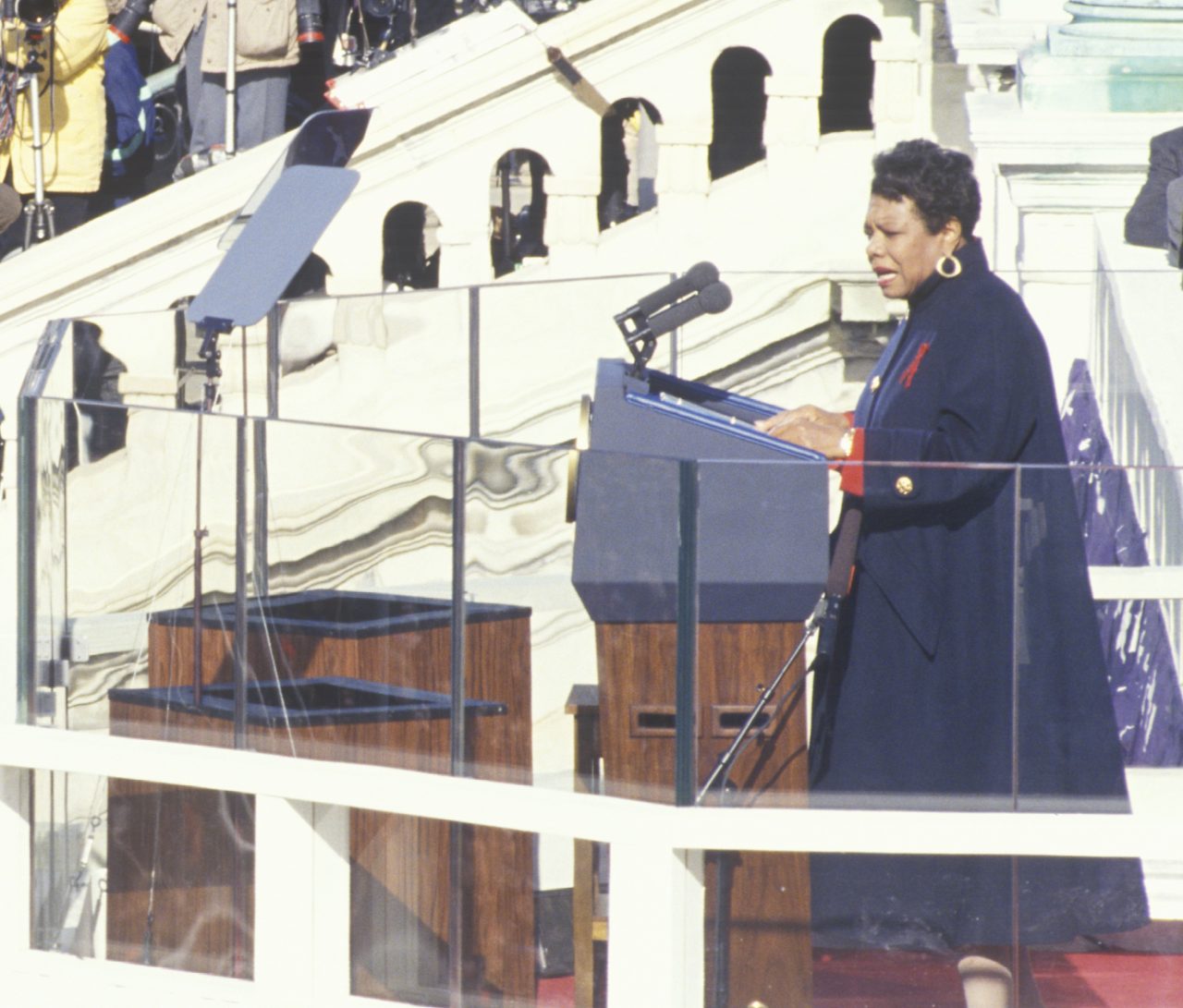A Rainbow in Someone's Cloud: Remembering Maya Angelou
Marguerite Anne Johnson was born April 4, 1928 in St. Louis, Missouri. Her parents’ marriage was rocky, and during a particular explosion, Marguerite and her brother, aged three and four respectively, were sent alone via train to live with their grandmother in Stamps, Arkansas. They would remain with their grandmother for four years before returning
Marguerite Anne Johnson was born April 4, 1928 in St. Louis, Missouri. Her parents' marriage was rocky, and during a particular explosion, Marguerite and her brother, aged three and four respectively, were sent alone via train to live with their grandmother in Stamps, Arkansas. They would remain with their grandmother for four years before returning to their mother in St. Louis. Marguerite's brother Bailey called her Maya, a nickname that would stay with her for the rest of her life.
Before she was eight, Maya was abused and raped by her mother's boyfriend. She reported him, and he was arrested; she testified at his trial, but he was never sentenced. A day after her testimony, her abuser was found beaten to death in an alley. Maya stopped speaking for nearly six years, adopting a vow of silence because her 7-year-old self was terrified that her voice had killed a man, and that it could happen again. She returned to Arkansas and her grandmother. With the help of a teacher, Bertha Flowers, Maya began a lifelong affair with books and slowly regained her voicea voice the world would eventually hear and embrace.
When Maya was a teenager, her family moved to Oakland, California. She studied dance and drama at the California Labor School and worked, at the age of 16, as San Francisco's first female streetcar conductor. She was passionate about dance, art, music, and the written word. She traveled, spending years in Egypt and Ghana, taking the time to begin studying the language of every country she visited; she would eventually gain proficiency in several languages. Maya worked at a variety of occupations, from actress to nightclub dancer to fry cook to playwright. She never went to college, but she is the epitome of the student of life. Maya would eventually earn more than 30 honorary doctoral degrees from universities all over the country, and has served as a professor at Wake Forest University.
You may have never heard of Marguerite Anne Johnson. But she grew up to be someone you should know: memoirist and poet Maya Angelou. Dr. Angelou passed away this morning, quietly, at the age of 86. She leaves behind seven autobiographies, numerous poems, and countless readers who have been inspired by her life and words.
Dr. Angelou chronicled her childhood and teen years in the monumental first volume of her autobiography, I Know Why the Caged Bird Sings, published to world renown in 1969 and nominated for a National Book Award in 1970; in 45 years, it has never gone out of print, and new waves of fans find it every day. Dr. Angelou was the first black woman to write a produced screenplay, Georgia, Georgia, filmed in Sweden in 1972. Since then her writing has seen life on stage, film, television, and the printed page.
Dr. Angelou enjoyed a very particular writing ritual. She did not write at home; rather, in the morning she would take legal pads, a Bible, a thesaurus, and a bottle of sherry and check into a hotel where she would spend the day writing. She would sometimes bring a deck of cards and play solitaire to get her mind working.
Maya Angelou was a gift to the people who knew her, and to the generations who have come to know her. Her words are as important as they are poignant and beautiful. As a woman and a writer, I see Dr. Angelou as a force. A force that, despite her passing, will continue to mold lives for good.
I remember reading Caged Bird and being amazed not only at its striking honesty, but at the sensory experience its language presented: it was a story to hear, see, smell, and feel. Feel. One of my favorite Angelou quotes goes: People will forget what you said, people will forget what you did, but people will never forget how you made them feel. No, Dr. Angelou. I will not forget how you made me feel.
Thank you.


 Member Connect
Member Connect